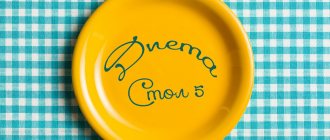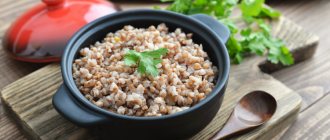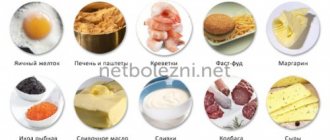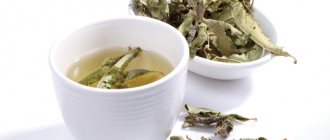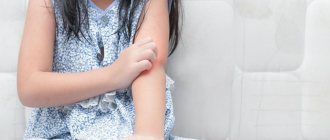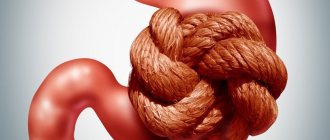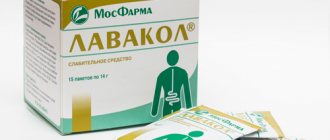List of what you can eat before donation
- Cottage cheese;
- Lean meat (such as poultry) and beef (in small quantities);
- Root vegetables (potatoes, beets, carrots, etc.);
- Self-grown fruits, however, should not be too sour;
- Mineral water and not too sweet compotes and fresh juices;
- Egg whites. The recommended amount is no more than one per day;
- Lean fish (such as pike perch, herring or cod);
- A simple soup made with vegetable broth.
Before you go to donate blood, plasma or platelets, you need to drink one glass of a natural drink. If this is not done, blood pressure may change sharply, which will lead to the development of a hypovolemic reaction. Before donating blood, the donor's food should enter the body approximately 2-3 hours before the procedure. This will help you avoid weakness and the risk of fainting.
How to eat before donating blood?
- You must follow a special diet for 2-3 days before donating blood. It is necessary to exclude fatty, fried, spicy, smoked, mayonnaise, ketchup, nuts, seeds, mushrooms from the diet;
- On the morning of donating blood, you should not eat dairy products, eggs, or butter;
- It is recommended to eat boiled cereals, pasta in water without oil, vegetables, fruits (except bananas);
- It is recommended to drink sweet tea with jam, fruit drinks, compotes, and mineral water. The donor needs to increase the volume of fluid consumed to 1.5 - 2 liters.
Nutritional Features
Before donating blood, drinking alcohol and smoking are prohibited for two days.
You also need to avoid spicy, fatty, fried, smoked foods . It is recommended to eat foods rich in carbohydrates: fruits, vegetables, cereals, pasta.
After the procedure, you need to regain your strength. To do this, eat foods rich in proteins, complex carbohydrates, fruits, nuts, dried fruits. It is recommended to focus on plant-based foods.
If we are talking about whole blood donation, then it will take about 30-40 days for complete recovery.
If a person donates individual components, for example, plasma, the recovery time will be shorter - about 5-6 days. During this time, it is recommended to adhere to the general rules for donors.
How to prepare for donating blood?
- Be sure to get enough sleep!
- BREAKFAST IS A MUST ! On the day of blood donation, it is recommended - sweet tea, jam, bread, pastry, crackers, dried cereals, boiled cereals, pasta in water without oil, juices, fruit drinks, compotes, mineral water, vegetables, fruits (except bananas);
- Consume an increased amount of liquid (fruit drinks, juices, compotes, mineral water) up to 1.5-2 liters;
- On the day of blood donation, it is necessary to exclude dairy products (cottage cheese, butter, milk), eggs, fatty foods, fried foods from the diet;
- Two days before donating blood, you should not drink alcohol;
- At least 5 days must pass after menstruation;
- For three days you should not take medications containing aspirin and analgin;
- One hour before donating blood, you should refrain from smoking;
- There is no need to plan to donate blood immediately before exams, competitions, or during a particularly intensive period of work;
Contraindications to donation
According to the order of the Ministry of Health dated September 21, 2001, there are absolute and relative prohibitions for donation.
Absolute contraindications:
- infectious diseases (AIDS, syphilis, brucellosis, etc.);
- diseases caused by parasites (toxoplasmosis, filariasis, etc.);
- somatic diseases of various organs (kidneys, liver, heart, lungs, thyroid gland, etc.);
- oncology;
- hypertension II-III degree;
- mental illness;
- recent operations on various organs;
- skin diseases (psoriasis, eczema, lupus, dermatitis, etc.);
- organ transplantation.
Temporary contraindications:
- Is it possible to drink water before donating blood from a vein for various tests?
- abortions;
- tattoos;
- acupuncture;
- travel to foreign countries (especially to Africa);
- communication with sick people;
- recent illnesses (ARVI, influenza, etc.);
- removal of a tooth;
- allergic rashes;
- VSD;
- pregnancy;
- period of menstruation;
- taking antibiotics, analgesics;
- consumption of alcoholic beverages;
- vaccinations;
- change in test results.
Time limits vary. For example, after an abortion you cannot donate blood for six months, after a sore throat - for a month, after a tooth extraction - for 10 days.
Basic rules for preparing for the blood drawing procedure
The following conditions must be met:
- before collecting biomaterial, you can eat food no later than 8-12 hours before the procedure, depending on the type of study;
- 2 days in advance you need to remove fried and fatty foods from your diet;
- 1 day before the test, avoid physical activity and do not go to the gym;
- in consultation with your doctor, you must stop taking medications that affect coagulation, except in cases where the analysis is carried out to monitor these indicators;
- 1 day before the procedure, a person should not undergo ultrasound, radiography, or endoscopy.
Beverages
The consumption of liquids by the future donor deserves special attention. As practice shows, they affect test results no less strongly than food consumption.
The list of permitted drinks that can be used for 3-4 days before donating blood includes:
- Regular filtered or boiled water. It will not cause harm to the body, but it will not improve blood quality indicators either;
- Tea . It is best not very strong - for example, green. Sugar can be added sparingly;
- Compote. Any types of compotes made from dried fruits are suitable;
- Morse . In limited quantities and not very sour;
- Mineral water . It is advisable to focus on standard types of these products and not choose medicinal ones, saturated with certain substances;
- Juices . It is preferable to use fresh fruit and vegetable juices made with your own hands from non-acidic varieties of products.
Prohibited drinks
- Alcohol . In any form, from beer to vodka. A number of nutritionists recommend drinking 100 grams of red wine per day, but after the procedure to speed up its recovery;
- Sweet carbonated drinks . Coca-Cola, Sprite, similar products with flavors and other additives are strictly prohibited;
- Coffee . It is a conditionally prohibited drink, but can be used to a limited extent if it is made from natural grains and is not very strong. It is preferable to use substitutes for this drink - for example, based on chicory.
Following simple recommendations on diet is very important, since after the donor consumes “undesirable” foods, it becomes more difficult to carry out a high-quality blood examination.
Diet before donation
The night before donating blood, the donor should not consume:
- fatty foods
- fried food,
- spicy food
- smoked products,
- dairy products,
- eggs,
- oil.
These products have a bad effect on blood quality.
On the day of donating blood in the morning, completely exclude:
- all dairy products,
- eggs,
- bananas,
- meat products (sausage, frankfurters).
Even the smallest piece of cheese, coffee with milk or cream, a sandwich with 5 grams of butter, low-fat yogurt, banana or one egg will affect your blood test.
Eating fatty or fried foods before blood donation can lead to chyle and also greatly worsen the results of some tests.
Food that contains a large amount of animal and vegetable fats (fatty meat, lard, fatty sauces, pilaf, pastry creams, etc.) is considered fatty.
Fried food is food cooked in vegetable or animal fats in a frying pan without a lid (pancakes, fried potatoes, meat, fried pies, cheesecakes, scrambled eggs, etc.) or open fire (grill, shish kebab).
The most ideal breakfast is sweet porridge with water, sweet tea, dry bread, bread with jam.
Alcohol and drugs
During the 48 hours before the donation procedure, you should refrain from drinking alcohol; 72 hours before donating blood, you should not take medications containing aspirin and analgesics.
Smoking
One hour before donating blood, you should refrain from smoking. After the donation procedure, you should also wait an hour before lighting a cigarette.
Special preparation is important before donating platelets. It is very important not to smoke 2 hours before the procedure. If the donor smoked before donation, the functional activity of platelets decreases, i.e. those platelet transfusions to the patient become less effective. In addition, platelets may clump into conglomerates (aggregate), which is a reason for discarding them.
A donor with an improper sleep and rest schedule will also donate low-quality blood and may harm his health.
Diet after donation
For the speedy and complete restoration of blood composition, the donor is recommended to consume foods containing proteins, iron and calcium.
Proteins:
- milk and dairy products - kefir, sour cream, cottage cheese, cheeses (animal proteins),
- meat and meat products, poultry, eggs, fish and seafood (animal proteins),
- beans, peas, soybeans, lentils, corn (vegetable proteins).
Iron:
- buckwheat,
- lentils,
- parsley,
- spinach,
- apples,
- grenades.
Calcium:
- cheese,
- cottage cheese,
- eggs,
- fish,
- sesame.
Donating one portion of blood deprives a person of internal iron reserves in the body. Iron is necessary to restore lost red blood cells. Low iron levels are a common cause of anemia.
All donors should eat foods containing iron.
List of iron content in certain foods (mg/100 g of product)
| Product | Iron content, mg/100 g | Product | Iron content, mg/100 g |
| Dried mushrooms | 30—35 | Rabbit meat | 4—5 |
| Pork liver | 18—20 | Almond | 4—5 |
| Wheat bran | 18—20 | Turkey meat | 3—5 |
| Brewer's yeast | 16—19 | Peaches | 4—4,5 |
| Sea kale | 15—17 | Raspberries | 1,6—1,8 |
| Cocoa | 12—14 | Beet | 1,0—1,4 |
| Veal liver | 9—11 | Apples | 0,5—2,2 |
| Buckwheat | 7—8 | Boiled broccoli | 1,0—1,2 |
| Egg yolk | 6—8 | Potato | 0,8—1,0 |
| Heart | 6—7 | Carrot | 0,7—1,2 |
| Beef tongue | 5—6 | Fried chicken | 0,7—0,8 |
| Fresh mushrooms | 5—6 | Bananas | 0,7—0,8 |
| Beans | 5—6 | Egg white | 0,2—0,3 |
We recommend that regular platelet donors take calcium-containing vitamins, as well as calcium-rich foods such as cheese, cottage cheese, eggs, fish and sesame seeds.
Khiloz
Sometimes, when ordering a particular laboratory test, the resulting result may contain a not entirely clear phrase - blood chyle. Any ignorant person who is in no way connected with medical terminology can assume God knows what and think that this is some kind of terrible blood disease. In fact, everything is much simpler: blood chyle is not a disease; this term is used if, when taking tests, the level of triglycerides in the blood was significantly increased, which normally should not be there. Chylous serum can occur in people of different ages, genders and various occupations.
Blood chyle is a definition of a pathological condition, which indicates the presence of fatty particles in the blood that do not allow for an accurate diagnosis. After centrifugation, blood containing a high level of triglycerides (neutral fats) becomes white and very thick, resembling sour cream in appearance.
Causes of chylosis
Triglyceride levels can fluctuate significantly within one day. Their content in the blood serum increases significantly 15-25 minutes after a meal and only after 10-12 hours it decreases to the initial level, therefore all blood tests must be performed on an empty stomach, as a rule, after an overnight period of fasting, so that the lipids contained in food do not enter into the blood.
Most often, blood chyleosis is observed in patients who were improperly prepared for blood tests. You should not drink alcohol or fatty foods before donating blood. It is this reason that provokes a high level of neutral fats and the formation of chylous serum.
Chylous serum does not make it possible to isolate blood components. Therefore, a blood test cannot be performed. It is also impossible to use “fat” blood for transfusion to the recipient.
